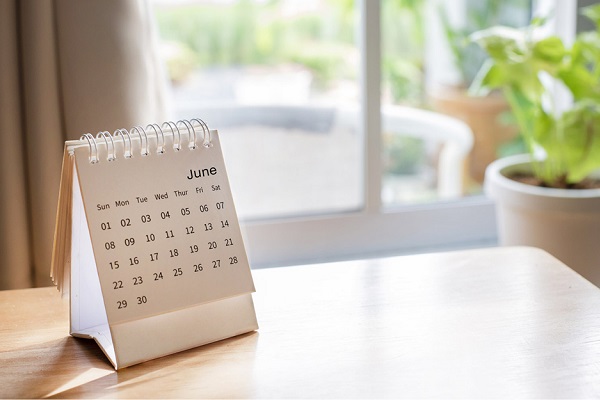It can take many years and a lot of hard work to build a successful small business. When you finally decide it’s time to sell, tax is often the last thing on your mind. Yet it can have a big impact on how much of the sale price you get to keep – and how much goes to the taxman.

The biggest tax issue to consider is capital gains tax (CGT). Although the Government tightened eligibility for its small business capital gains tax (CGT) concessions in 2018, there are still generous discounts available for those who qualify.
How much CGT is payable?
CGT is imposed whenever you sell capital assets you acquired on or after 19 September 1985. The capital gain is calculated on the sale price of the asset minus its cost base. Tax is then calculated on the capital gain multiplied by your normal marginal income tax rate.
While CGT applies to company shares and goodwill, it does not apply to trading stock and depreciating assets used solely for taxable purposes like business equipment.
What concessions are available?
To soften the tax blow, the Government offers small business owners several concessions. These are on top of the normal 50 per cent general discount on CGT that applies when an asset has been owned for more than 12 months.
Applying the four small business CGT concessions could eliminate or substantially reduce tax payable on the sale of your business if your annual turnover is under $2 million.
The first concession is the 15-year exemption, which exempts the capital gain from a business asset if you have owned it for at least 15 years. If you are aged 55 or older and are retiring, or are permanently incapacitated, you won’t pay any CGT when selling, gifting or transferring the business asset.
If you don’t qualify for this exemption, all is not lost. You can still use the CGT general discount, then any of the remaining small business concessions you are eligible for (see case study).
The second concession is a 50 per cent active asset reduction. This discount allows you to reduce the capital gain arising from the sale of an active business asset.
Therollover concession allows you to defer the capital gain from the disposal of an active business asset until a later financial year if you buy a replacement asset or make a capital improvement to an existing asset. The replacement asset can be acquired one year before, or up to two years after the CGT event.
The final concession is for small business owners who sell an active business asset to retire. They receive a CGT retirement exemption up to a lifetime limit of $500,000. If you are aged under 55, money from the asset sale must be paid into a complying superannuation fund.
Does your business qualify?
Before you can apply for any of the small business concessions, your business must meet the Government’s recently tightened basic eligibility conditions.
If you want to take advantage of the concessions, you need to ensure you check the qualifying requirements carefully, or speak to us for more information as the rules are quite complex.
Under the basic eligibility conditions, you must satisfy one of four different criteria. You must be a small business entity (SBE) with an aggregated annual turnover of less than $2 million; satisfy the maximum net asset value ($6 million) test; be a partner in an SBE partnership; or not be carrying on a business but have what is deemed a ‘passively-held asset’ used in the business of a connected entity.
In addition, the asset you are disposing of must satisfy the active asset test. If it is shares in a company or an interest in a trust, it must meet additional conditions.
Selling the business, or the company?
How you sell the business’s operations also raises tricky tax questions.
It’s important from a tax perspective whether you are selling the shares in the company that carries on the business, or whether the company entity is selling its business and then distributing the proceeds back to shareholders.
This can have a significant impact on the final tax bill. If the company sells the business and makes a distribution, the 50 per cent general CGT discount will not apply as companies are ineligible for this concession, even if the assets have been held for more than 12 months.
If you are thinking of selling your business, call us to discuss the potential CGT implications and whether you qualify for the small business CGT concessions.
Case study
Ken is a small business operator who sells an active asset he has owned for more than 12 months. He makes a capital gain of $20,000. Ken also has a separate capital loss of $4,000. Assuming he satisfies all the conditions for the CGT discount and the small business 50% active asset reduction, Ken calculates his net capital gain as follows:
| Capital gain | $20,000 |
| Capital loss | $4,000 |
| Take the loss away from the gain | $16,000 |
| Apply 50% CGT discount ($16,000 x 50%) | $8,000 |
| Apply 50% small business active asset reduction ($8,000 x 50%) | $4,000 |
| Reduced capital gain | $4,000 |
Ken may be able to further reduce his $4,000 (reduced) capital gain by using the small business retirement exemption and small business rollover if he satisfies the conditions for those concessions.
Source: ATO
Did you enjoy this article?
Click below to share it
More News Articles
Subscribe to Our Mailing List & Connect Through our Socials
While you may have come to us from a variety of sources, the time has never been better to join us.
Subscribe to our mailing list and connect through out socials to keep up to date with our latest news and get some tips.










